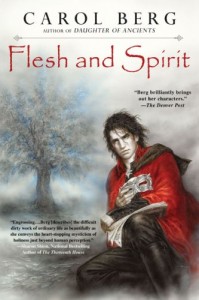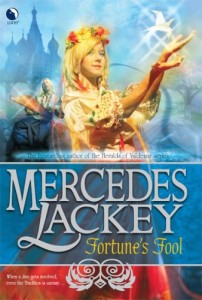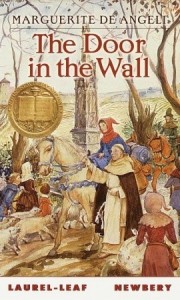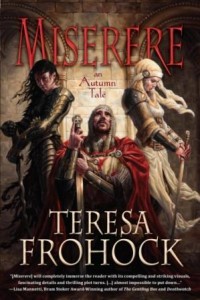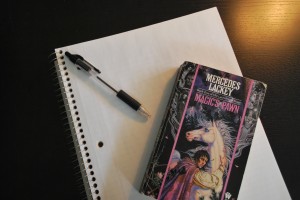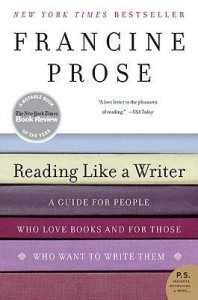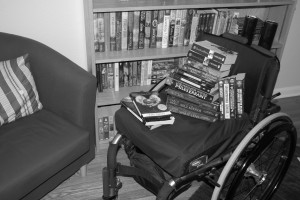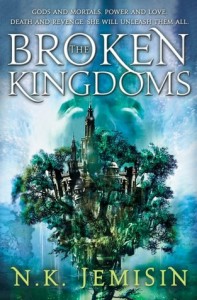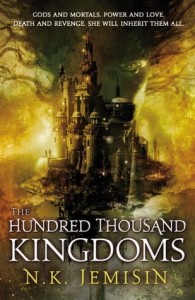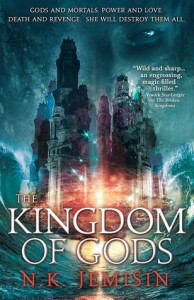I was going through my Google Reader last week and found an awesome surprise on my friend Becca’s blog. She tagged me for “The Next Big Thing”, and I’ve been having fun hopping around and reading about what everyone’s working on. Since you guys have heard plenty about By Wingéd Chair already, I figured I’d give you a look at a brand new project. So new it’s not even on my WIP page yet. Save your gasps of awe till the end, please. The rules for “The Next Big Thing” are simple: answer a few questions about your book and tag more people who write, whose current WIPs you want to hear more about!
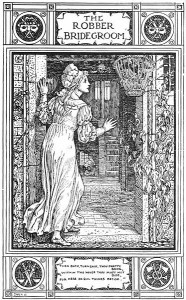 What is the working title of your book?
What is the working title of your book?
Right now I’m calling it The Robber Bridegroom because that’s the fairytale it’s loosely following (that and The Singing Bone, but it can’t have two titles). Not terribly exciting, I know, but titles are tricky things for me. Sometimes they’re the first thing I know about the story, but most of the time they don’t show up until I’m halfway through the book (Skin Deep didn’t show up until the last line, obstinate little bugger). At least The Robber Bridegroom is better than Magic Cop which was the file name for years.
Where did the idea come from?
Usually it’s easier for me to pinpoint the idea that spawns a whole book, whether it’s a scene like Blue Fire, or a concept like Catching Cinders. But this one is more of a patchwork of different thoughts and feelings, and it’s actually a really old idea. It’s been sitting in my futures notebook for several years waiting for a story to go with it. I wanted to write about a world where magic and technology have evolved side by side through an industrial revolution resulting in a setting that looks very similar to New York or London in the year 1900. A certain important plot element and its accompanying feelings came from a dream, one of those where I wake up scrambling for a pen. And some of the tone and themes were inspired by Boondock Saints.
What genre does your book fall under?
Young Adult Fantasy with kind of a thriller vibe
Which actors would you choose to play your characters in a movie rendition?
I’d really rather there was never a movie version. Sorry. I write novels, not screenplays.
What is the one sentence synopsis of your book?
A seventeen-year-old cop with OCD must reconnect with her vigilante father in order to catch a serial killer. What do you think? Is this any good? I think it sounds a little generic, and I can’t figure out how to fit the magic in without making it too long.
Will your book be self-published or represented by an agency?
Kind of a cart and horse thing considering the stage of the project, but I’m nothing if not goal-oriented. I’d really like an agent and a publisher. I’m good at the writing stuff, but the legal and marketing stuff? Yeah, not so much. By Wingéd Chair is currently on submission to the first batch of agents, so we’ll see what comes.
How long did it take you to write the first draft of your manuscript?
Um…wait. It’s supposed to be done? Heheh. This is my newest project, and I haven’t actually started writing it yet, just getting it all in order. Lots more research than any of my others so far. But if it follows the normal patterns then I’ll get most of it (at least 50,000 words) on paper this November for Nanowrimo, and then I’ll spend the next two or three months hemming and hawing before I write down the end. I’m not sure why but this always happens.
 What other books would you compare this story to within your genre?
What other books would you compare this story to within your genre?
Hmm. I hadn’t actually thought about this yet. I’m going to go with Tamora Pierce’s Terrier (because of the cop element and because Tamora Pierce is probably my deepest influence) and Maria V. Snyder’s Poison Study (because there are some lovely secrets and horrible pasts to conceal and discover and Snyder pulled this off with gut-wrenching style).
Who or what inspired you to write this book?
Same thing as the rest in the Valeria series. I feel a need to read (and consequently to write) about unlikely heroes, characters who don’t fit the mold yet who still reach out and touch something in all of us.
What else about your book might pique the reader’s interest?
This is my first novel to feature a character with a disability entirely different from my own. Aschen, Merry, and Anwen all have trouble walking. Kallan has what we would recognize as OCD. So not only does she have to overcome a questionable past and a manipulative (and slightly psychotic) father, she also has to work around obsessions and compulsions that continually screw up her attempt to straighten out her life. The prospect of writing Kallan is both exciting and terrifying. I can’t wait to meet her.



